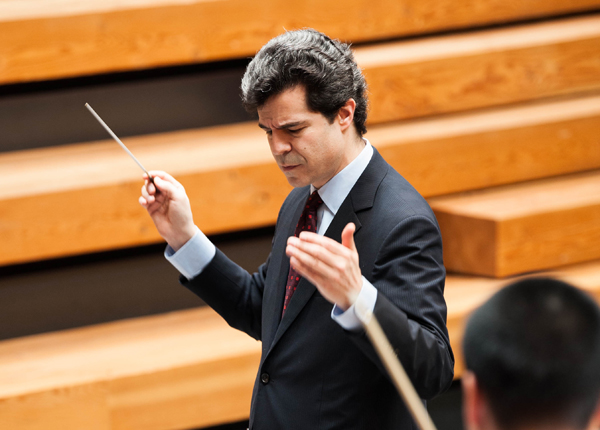DAVID HATTNER’S SEPTEMBER PYP PLAYLIST
Posted on August 31, 2017

PYP Musical Director David Hattner shares what’s currently on his playlist. Revamp your own playlist with selections from our PYP Playlist on Twitter every #MusicMonday.
PYP will open its 94th season with this exciting and underappreciated overture on Saturday, November 11, 2017 in the Arlene Schnitzer Concert Hall. It was commissioned for the opening of the National Theatre in Prague in 1883. By the time of this overture, Dvořák had come a long way from being a butcher’s son from nowhere. He had received stipends from the Austro-Hungarian Empire (recommended by Brahms, no less) and written many pieces well known today, particularly the Slavonic Dances, Op. 46 (another set of dances was soon to come in Op. 72). His music was gaining popularity all over the world for its distinctive Czech flavor, which especially endeared him to his home country.
The National Theater at the time was planning to present dramas about the life of Jan Hus (1369-1415), whose early attempts to reform the Catholic Church (preceding Martin Luther by 100 years) resulted in three crusades. Hus was well enough known to come to the attention of Joan of Arc, who wrote him a letter threatening him with attack should he not return to the Catholic Church.
In this Overture, Dvorak used two old pieces of Czech music. Camerata PYP fans will be familiar with the St. Wenceslaus (Vaclav) Chorale from our performance of Josef Suk’s Meditation on an Old Czech Chorale last season. Suk (Dvořák’s son in law) and Dvořák both use this Chorale, although in different ways.
Dvořák also uses the Hussite War Chant. Dvořák is constantly juxtaposing these two themes, representing the battles between Catholics and Proto-Protestants.
History records that the Catholics were ultimately triumphant, with the small Moravian Church being the last remnant of the Hussites. Dvorak himself was Catholic, and his triumphant overture seems to indicate more of a reconciliation than a defeat for either side.
I became familiar with this work as a child through a recording in my father’s collection. That particular performance was by the Boston Pops and Arthur Fiedler and I still love it today. The recording I choose to present here is by the great Hungarian conductor Istvan Kertesz. Kertesz was among the first conductors to record all 9 of Dvorak’s Symphonies. 50 years later, these recordings are still among the very best, and the London Symphony sounds absolutely brilliant.
Stay tuned,

Follow PYP on Twitter for more #MusicMonday selections.

2 Comments :